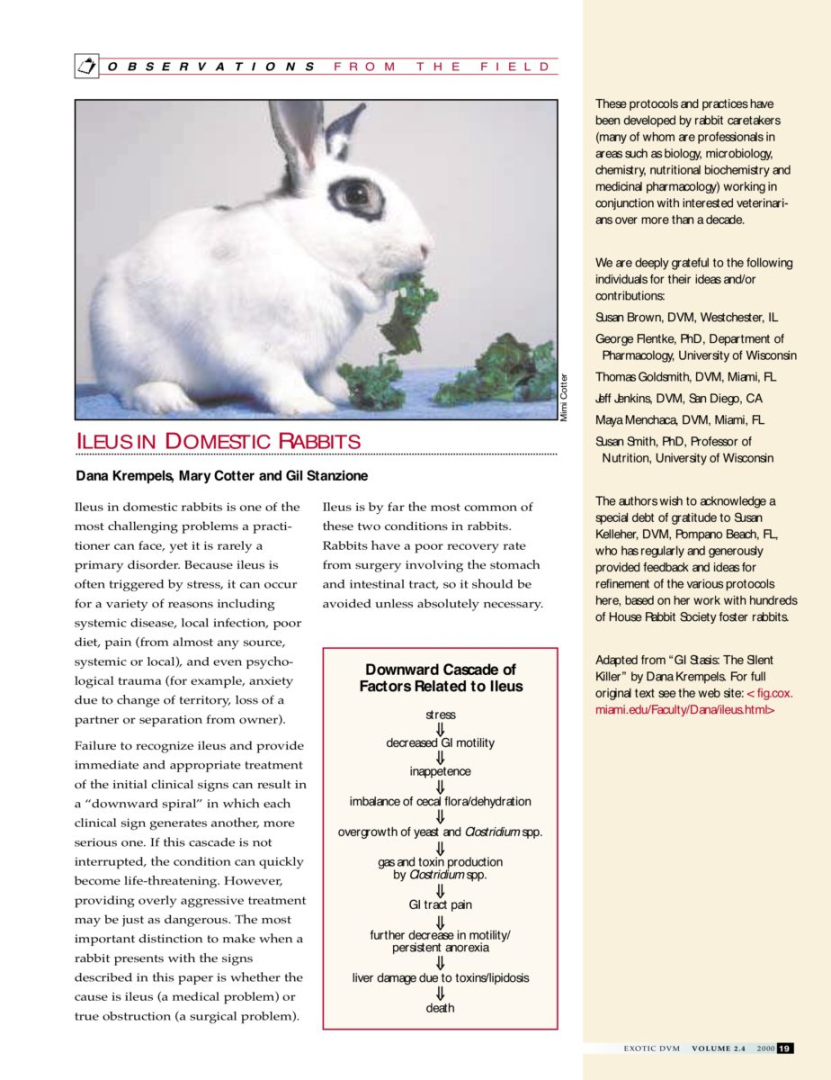What Causes GI Stasis in Rabbits?
Rabbits are known for their delicate digestive systems, and one of the most common and potentially life-threatening conditions they can experience is GI stasis. GI stasis, also known as gastrointestinal stasis, occurs when a rabbit’s digestive system slows down or stops completely. This can be caused by a variety of factors, and it is important for rabbit owners to be aware of these causes to prevent or address GI stasis in their pets.

Dietary Factors
A rabbit’s diet plays a crucial role in maintaining a healthy digestive system. A diet that is low in fiber and high in carbohydrates can disrupt the normal functioning of the gut and lead to GI stasis. Feeding your rabbit a balanced diet that includes an ample amount of hay, fresh vegetables, and a small portion of pellets can help prevent this condition. It is also important to introduce any dietary changes gradually to avoid upsetting the rabbit’s delicate digestive balance.
Dehydration
Dehydration can significantly impact a rabbit’s digestive system and contribute to the development of GI stasis. Rabbits primarily obtain moisture from the food they consume, so a diet lacking in water-rich foods can lead to dehydration. Additionally, insufficient water intake or limited access to fresh water can also result in dehydration. It is crucial for rabbit owners to ensure their pets have constant access to clean, fresh water to prevent dehydration-related GI stasis.
Lack of Exercise
Exercise plays a vital role in maintaining a rabbit’s overall health, including their digestive system. Regular physical activity helps stimulate the gut and promotes proper digestion. When rabbits are sedentary or confined to small spaces, their digestive system can slow down, increasing the risk of GI stasis. Providing ample space for exercise and encouraging your rabbit to engage in daily movement can help prevent this condition.
Stress and Anxiety
Rabbits are sensitive animals, and stress or anxiety can have a significant impact on their digestive health. Changes in their environment, handling, or social interactions can cause stress and disrupt their normal digestive patterns, leading to GI stasis. It is essential to provide a calm and secure environment for your rabbit and minimize any potential sources of stress or anxiety to maintain their digestive well-being.
Dental Problems
Rabbits have continuously growing teeth, and if their teeth are not properly aligned or they have dental issues, it can affect their ability to chew and grind food effectively. Dental problems can lead to improper digestion, which can contribute to GI stasis. Regular dental check-ups by a veterinarian and providing appropriate chew toys can help prevent dental issues and reduce the risk of GI stasis.
Frequently Asked Questions (FAQs)
1. How can I prevent GI stasis in my rabbit?
To prevent GI stasis in your rabbit, ensure their diet is rich in fiber, primarily consisting of hay and fresh vegetables. Provide unlimited access to clean, fresh water and encourage regular exercise. Minimize stress and anxiety by creating a calm environment, and ensure your rabbit’s dental health is regularly checked by a veterinarian.
2. What are the warning signs of GI stasis in rabbits?
The warning signs of GI stasis in rabbits include a decrease in appetite, reduced or no fecal output, a decrease in activity level, bloating of the abdomen, and a hunched posture. If you notice any of these signs, it is crucial to seek veterinary care immediately.
3. How can I encourage my rabbit to drink more water?
You can encourage your rabbit to drink more water by providing fresh water in a clean bowl or water bottle. Some rabbits prefer one over the other, so you may need to experiment to find the preferred method. You can also try adding a small amount of apple juice or herbal tea to the water to entice your rabbit to drink more.
4. Can stress really cause GI stasis in rabbits?
Yes, stress can indeed cause GI stasis in rabbits. Rabbits are highly sensitive animals, and any changes in their environment, handling, or social interactions can cause stress and disrupt their digestive system. It is essential to provide a calm and stable environment for your rabbit to promote their overall well-being, including their digestive health.
Related Articles…
Copyright Notice:
All images featured on this site are sourced from the internet, copyrights belong to respective owners. Should you own any image and require it to be removed, please contact us.